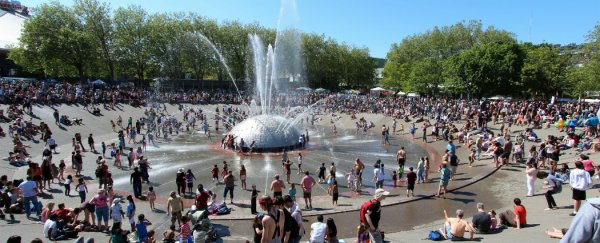Seattle, Washington is about to get some super-fast public WiFi, with Microsoft installing a new Wi-Fi service in the Seattle Centre - a large public entertainment quarter featuring a park, pavilion, and the iconic Space Needle building.
The move is part of Microsoft's research into new technology that can harness the power of long-range signals that can easily penetrate walls and other solid obstacles, and uses four times more access points than the city's previous Wi-Fi technology. "Along with quadruple the access points, the tech gives the Seattle Centre public Wi-Fi speeds up to 5,000 times faster [than Seattle's former public Wi-Fi system], letting you Skype, Vine and Meerkat to your heart's content," says Steve Dent at EnGadget.
Not only will the Wi-Fi be a whole lot faster, and support more than just simple web-browsing and emailing, but it can also handle a substantial amount of people using it all at the same time. "The most obvious advantages of this technology are speed and performance," Dayne Sampson, Microsoft Corporate Vice President of Engineering, told The Ballard News-Tribune. "What will be exciting for those attending big events such as Bumbershoot is that this technology can handle more than 25,000 users at a time. That's a distinct difference from the free Wi-Fi often found in public places."
If everything goes swimmingly with this first trial, the technology will be rolled out to other neighbourhoods throughout Seattle, and then, presumably, throughout the States.
Slowly but surely, we're seeing faster Internet speeds actually making their way to the public, with various isolated test-runs spreading out across the States. Late last year, a US Internet provider gave 30,000 residents in the Minnesotan city of Minneapolis access to 10 gigabit per second connections. That's 10 times faster than Google Fibre's recent effort, and it means it would take you less than a second to download a feature film.
And in Feburary, researchers at the University of Surrey in England announced that they'd achieved 5G speeds of 1 Terabit per second across a space of 100 metres in the lab, which is by far the fastest wireless connection to date.
Great things are coming, we just hope Australia will be able to catch up…
Sources: EnGadget, The Ballard News-Tribune
